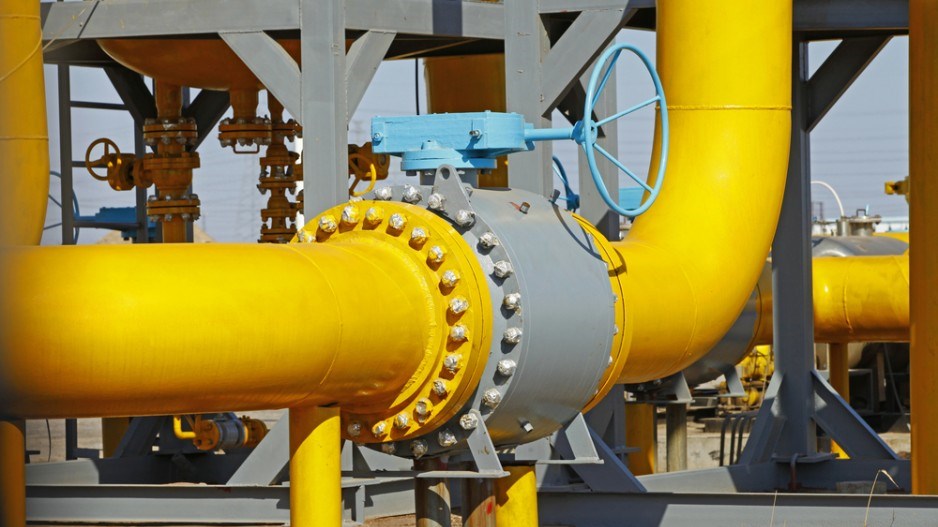The Canadian oil and gas industry will not be able to benefit from future strengthening of commodity prices without pipelines to tidewater and regulatory stability, according to PricewaterhouseCoopers LLP.
In a 24-page report to be released at its annual Energy Visions forum in Calgary May 26, the accounting firm said the Canadian oil and gas industry “unanimously agrees that innovative operational changes are only part of the answer.
“We can’t take full advantage of any future price rise without pipelines to tidewater. And we won’t stop the flight of capital until government policies provide investors with the regulatory stability they’re looking for.”
To build a more resilient oil and gas sector, the industry will continue to control operating and capital costs, staffing, project definition and development, the report says.
But it stressed: “A greater understanding and a renewed spirit of collaboration between industry, government, special-interest groups and the general public is a critical first step towards addressing these challenges and building a sustainable industry.”
PwC believes “political risk” is increasing for the Canadian oil and gas industry.
“A series of recent political initiatives, such as Alberta’s climate strategy, a corporate tax hike and royalty review have raised concerns and contributed to slowing investment,” the report says.
“In January, the Alberta government decided to leave the royalty regime for oilsands projects unchanged, but the fact that the review even occurred has added to an already significant amount of policy uncertainty,” it continues.
“Despite years of being labelled as an industry-friendly operating environment, the rules of the game have changed, fostering an increased political risk for oil and gas development in Alberta. Together with growing volatility, increasing policy risk exacerbates an investment environment already struggling with low oil prices.”
PwC says the result is that more capital is flowing out of Alberta to competing jurisdictions such as the United States, but didn’t give any specifics.
In a press release, Reynold Tetzlaff, a PwC partner and national energy leader, said: “What we need now, more than ever, is stability and certainty when it comes to carbon policies, procedures and price. Without stability, attracting foreign capital to our markets becomes increasingly difficult.”
Tetzlaff added: “A greater collaboration between key stakeholders is a critical first step towards addressing challenges and building a sustainable industry.”
Pipelines resolution ‘no closer’
While Canadian oil and natural gas production is expected to continue to grow, PwC acknowledged producers remain unable to reach new markets. As a result, Alberta’s landlocked oil sells at a discount to West Texas Intermediate (WTI).
“As operators continue to strive for political support, we’re no closer to resolving the contentious pipeline debate,” the report says.
It notes the federal government plans to ban tanker traffic off British Columbia’s northern coast which would leave oil from Enbridge Inc.’s planned Northern Gateway pipeline stranded in Kitimat, its planned terminus.
The report also notes the federal government extended the environmental review process for major energy projects that were already in the regulatory process.
“These developments signal a deteriorating political and social environment towards pipelines that threatens producers’ ability to address their top priority of resolving the market access issue and finding alternative export markets,” the report says.
LNG
No Canadian LNG exports are expected before 2020, but that delay may hold a silver lining, the report suggests.
PwC acknowledges Asian markets are currently oversaturated with LNG. China is well supplied with gas imports through 2020, much of it through pipeline contracts with Asian suppliers.
“Slowing Asian demand coupled with an oversupplied global LNG market means prices will remain depressed for the remainder of the decade and threaten the sanctioning of new LNG projects,” the report said.
But Canadian LNG exports are unlikely to come onstream till after 2020 when markets are expected to improve.
“So the fact that Canadian LNG has been lagging in the global LNG export race may actually work in Canada’s favour,” the report says. “Canadian LNG would avoid the currently oversupplied global market and would instead enter when today’s supply is easing and Asian demand is expected to pick up.”
However, PwC pointed out this scenario depends on the advancement of at least one major LNG project in Canada—at a time when the industry has faced numerous economic and regulatory setbacks.
Check out BIV’s podcast for the week of May 17, 2016:




